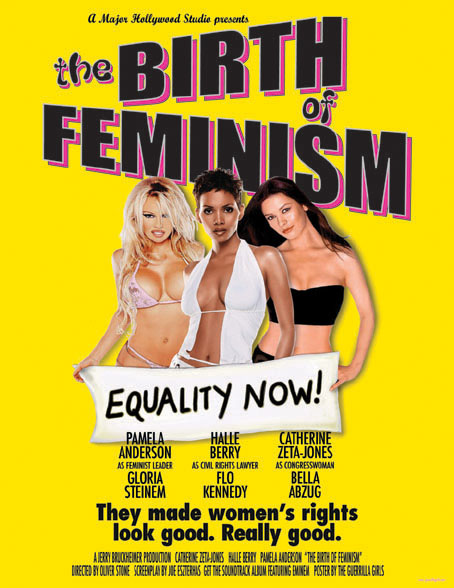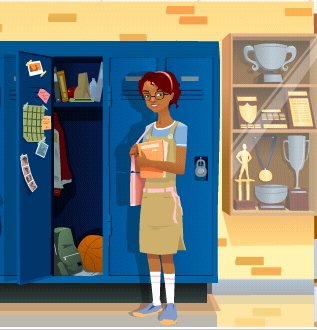 |
||||
|
Are Women Second Class Citizens?
Women Still See Themselves As Second-class Citizens
By Dian Harrison - March 8th 2005. Tuesday is International Women's Day, a worldwide celebration of women's fight for equality and human rights. In light of this commemoration, it is especially disappointing that the Bush administration is working so hard to restrict women's rights. Ten years ago, a landmark U.N. conference in Beijing adopted a platform seeking to establish global equality for women. Along with recommendations on issues such as domestic violence and education, the platform states women should be able to "decide freely and responsibly on matters related to their sexuality ... free of coercion, discrimination and violence." It also asserts that abortion should be safe in places where it is legal and criminal charges should not be filed against women who undergo illegal abortion. On Feb. 28, more than 100 countries and 6,000 advocates for women came together for a follow-up meeting to that conference. At the meeting, participants had planned to review progress made on women's rights. They had hoped to focus on pressing issues like political participation, sex trafficking and HIV/AIDS. Instead, they have been focused on the Bush administration's attempts to derail progress toward gender equality. A week before the conference, the U.N. Commission on the Status of Women asked participating countries to reaffirm their commitment to the original conference platform. In a nod to their conservative base, representatives from the Bush administration in the U.S. delegation said the United States would not sign on because they don't believe women should be guaranteed the right to abortion. This is despite the fact that the platform does not guarantee abortion rights. The U.S. delegation was also concerned that the ability to "decide freely and responsibly on matters related to their sexuality ... free of coercion, discrimination and violence" constitutes "sexual rights" for women, which according to the chief of the delegation, "not all member states accept." Additionally, Bush administration representatives demanded an amendment stating that a commitment to "reproductive health services" does not guarantee abortion rights. Egypt and Qatar were the only countries that have indicated support for the amendment. Only after intense pressure from other member countries did the United States withdraw the demand for an amendment. Now, member states wish to move forward to address the fact that 10 years after the original conference, women are still second-class citizens in much of the world. Ethiopia is a perfect example. Women have few rights. Laws and traditions prevent them from owning property, so they remain dependent on husbands and sons. In some instances, girls as young as 9 are married off to older men. According to the United Nations' WomenWatch, most Ethiopian women have their first child by 17 and are prevented from pursuing an education. Seventy-five percent are illiterate. Only 8 percent of women in Ethiopia have access to contraception, according to Population Action International. They have little or no control over when or whether they will have sex and repeatedly face unplanned pregnancies. They bear, on average, seven children. The maternal mortality rate is among the worst in the world. Rates of sexually transmitted infections are extremely high. The World Bank reports that more than 2 million Ethiopian women have HIV/AIDS. Those rates are worsening because of the Bush administration's position on women. In 2001, President Bush reinstated the global gag rule restricting funding for family planning. Under the gag rule, family planning agencies that receive U.S. money may not offer abortion counsel or refer women to abortion providers, or lobby to make or keep abortion legal in their own country, even if they use separate funds not provided by the United States. Providers are forced to make a cruel choice: Give up vital assistance and try to afford to continue to counsel women on all pregnancy options, or withhold critically important information. The gag rule restricts the simplest ways to improve the status of women: funding birth-control supplies so they can avoid unintended pregnancies and care for children they already have. In Ethiopia, abortion is illegal. Because most nongovernmental organizations that provide family planning have refused to abide by the gag rule, the resulting lack of U.S. funds has restricted the contraceptive supply, which means that abortion is also very common. Women take their lives into their own hands when faced with an unplanned pregnancy. If they cannot adequately care for another child, they try to end pregnancies with herbs, poisons or wire. Complications from unsafe abortions are the second leading cause of death for women, after tuberculosis, in Ethiopia.
As long as the Bush administration restricts women's rights by blocking access to contraception with the gag rule, unintended pregnancies will occur. So will abortion. The Bush administration's global gag rule and political posturing last week only exacerbate the situation. Women in all countries should have the right to make responsible decisions without coercion, discrimination or violence. They should have access to comprehensive information and health care. They should be able to own property, pursue an education, decide who and when to marry, and whether and when to have children. The situation in Ethiopia, however, is endemic around the world. Traditions and laws inextricably link sexual rights to education, employment, property rights and political participation. The rights the U.S. delegation was lobbying against last week are the very rights that would improve the status of women and their children. Rather than taking into account the harsh realities of women's lives and working to provide real solutions for women and girls, the Bush administration is playing politics with women's lives. Dian Harrison is president and CEO of Planned Parenthood Golden Gate (www.ppgg.org), which has a family-planning partnership with the Ethiopian Evangelical Church Mekane Yesus. Together, the organizations provide health education, birth control and safe-pregnancy care to 3.5 million in the South-Central region of Ethiopia.
Ontario launches new websites that promotes equality amongst young girlsBy Tess Kalinowski and Louise Brown - November 2006. By the time they're 8, many girls already see themselves as second-class citizens. That's why the province is now targeting girls from 8 to 14 in a $1.4 million campaign on dating violence and sexual harassment, said Sandra Pupatello, Ontario's minister responsible for women's issues. The campaign, announced yesterday, encourages equal, healthy relationships between boys and girls, and includes an interactive website (www.equalityrules.ca/en/) and ads. Pupatello said she was surprised at how early the seeds of abuse are planted in children through negative self-images. In fact, the campaign had to be reworked after it was realized through focus groups that material was needed for both teens and younger girls. While most of the click-on scenarios feature boys bullying girls, some young females surfing the site last night suggested there should be messages about girls bullying girls, too. "Girls being mean to each other happens every day — one actual fist fight between girls broke out at school this fall," said Sophie Tassone, 13, who tried out the activities with classmate Shannon Grant.
|
|
|||
|
|
||||
|
The various Web scenarios show boys insulting, controlling or ridiculing girls, and then suggest how girls can respond when that happens.
Their favourite was a cartoon about a guy harassing a girl through text messaging "UR Hot!" — something Shannon said "relates to our life at this age." "Guys are always messaging girls telling them they're hot, and if it happens 24/7, it can get creepy." "A lot of guys do think they're better than girls," Sophie said, "and it's really annoying, so everyone can relate to these scenes in some way." At times, the girls said, the advice goes too far — like recommending a girl call Kids Help Phone, the national toll-free advice line, if a boy is harassing her by text-message. "That's not realistic. I'd just tell my girlfriends," Shannon said. But the website "does help girls know they're not the only ones with this kind of problem," Sophie said. Pupatello said yesterday the government was "astounded by 8-year-olds that have already determined in their own mind that they are the lesser of the sexes." "It is quite unbelievable to think that 8-year-olds have realized they're just a girl and therefore they're destined to be the lesser in a relationship," she said. "We've got to change that view because that ultimately drives the kind of relationships you'll have in your lifetime. Governments historically have always dealt with the issue of domestic violence after the fact. If we don't get to the root cause of these issues, we're never going to make headway." The campaign features a television and movie theatre commercial, and a website, EqualityRules.ca, designed to teach girls how to recognize abuse and regain the upper hand in negative encounters and relationships. At EqualityRules.ca, the section aimed at preteens asks whether girls and boys can be friends. Ten-year-old Emily Gale says, "Sure! I'm friends with a boy — Gavin — and so is my friend Erin, although in my class, girls and boys don't really play too much together." The Grade 5 student at north Toronto's Maurice Cody Public School visibly enjoyed surfing the new website last night, clicking on cartoons that deliver straight-talking messages against "men bossing their wives around and hitting them." "I think some boys should go on the website, too. It would be good for them to see what it says about respect and healthy relationships." The government campaign also includes $1.2 million in grants to community groups set up education programs.
|
||||
 |
|
 |
||


